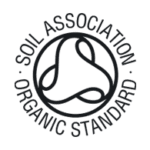The market for organic products continues to grow, especially since the pandemic. Many consumers are looking for cleaner, more natural products and the ‘organic’ badge can be an excellent indicator. But what does it mean for your product, how do you get organic certification, and how do you develop organic food and drink products?
What is organic farming?
Organic farming uses natural resources responsibly, maintaining biodiversity and preserving regional ecological balances. It avoids the use of artificial fertilisers and pesticides and employs crop rotation to maintain soil fertility. The general idea is to have as limited an environmental impact as possible while still growing food to eat.
What sort of consumers choose organic?
The organic food market has seen distinct growth due to recovery from Covid-19 – around 15% growth compared to earlier years. When it comes to organic food products, there tend to be three levels to customer perception:
- Periphery organic consumers (14%) are starting to lean towards buying organic but have made no significant behavioural changes.
- Mid-level organic consumers (65%) make up the bulk and are actively changing their attitudes and behaviours, often linked to lifestyle changes – parenthood, for example.
- Core consumers (21%) who are very interested and invested in the organic lifestyle, actively searching for and choosing organic food products.
Organic certification and labelling
 If you’re looking to develop compliant food and drink products, you’ll need organic certification from an official body, such as the Soil Association. There are regulations and organic control bodies in each country around the work, but, thankfully, there is mutual recognition.
If you’re looking to develop compliant food and drink products, you’ll need organic certification from an official body, such as the Soil Association. There are regulations and organic control bodies in each country around the work, but, thankfully, there is mutual recognition.
In the UK, there is a range of organic certification bodies to choose from. Their principles are similar, and each offers support and advice. All of them are valid. But choosing which one to follow will depend on what works for your brand and what your consumers might easily recognise.
In the UK, 95% of ingredients in your product should be organic to get you certified. That means that 95% of the farm-derived ingredients need to be organic, your production facility needs to be certified organic, and you need to register your business as organic. Your label must state the appropriate control body’s code number. If you’re a retailer, you can label products as organic if, again, 95% of the product’s farmed ingredients are organic.
